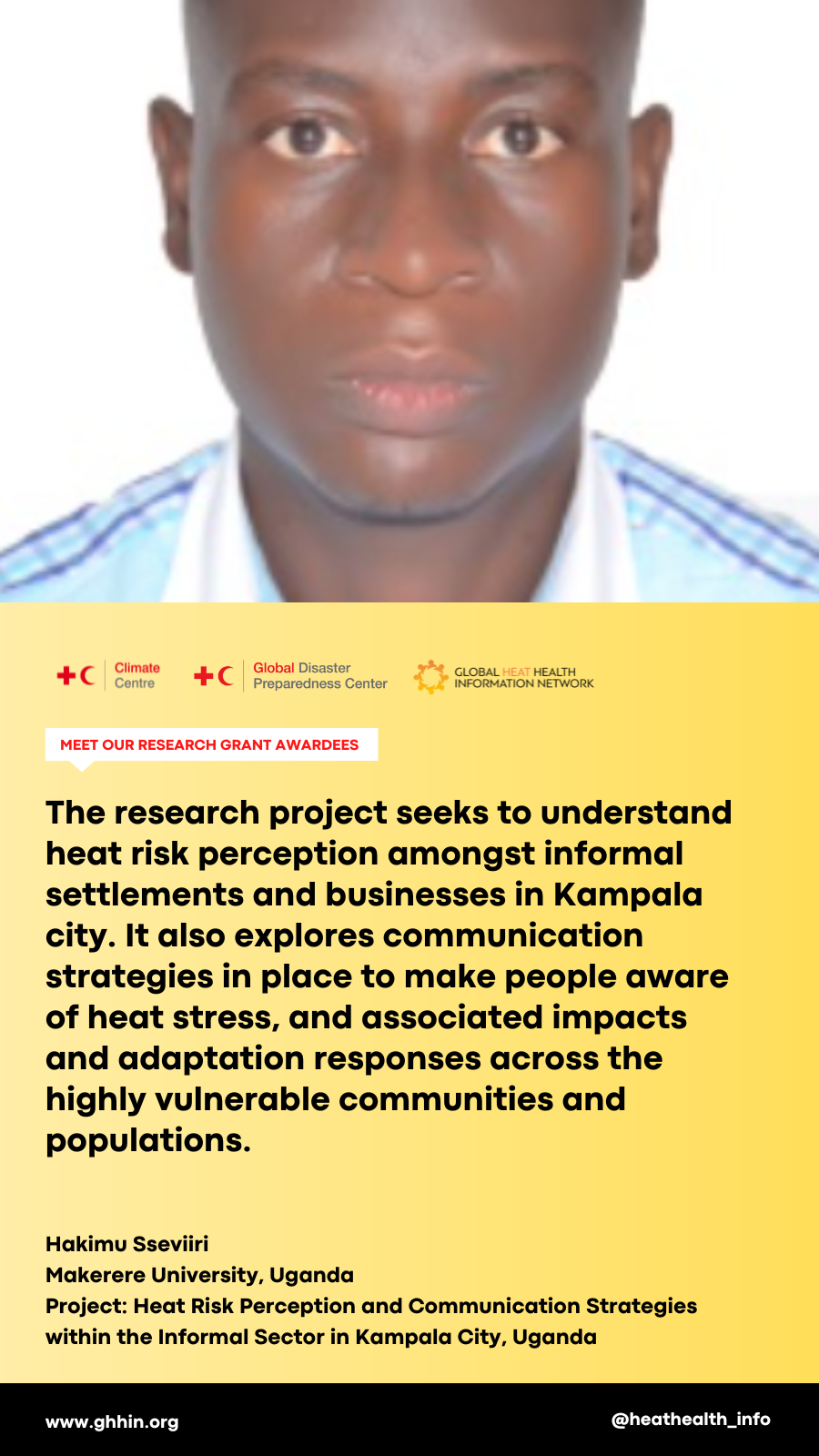New research projects explore impacts of heatwaves in low and middle-income countries
Published: September 7, 2022
Extreme heat is deadly, on the rise globally, and its toll can be reduced. Heatwaves are amongst the deadliest disasters and they are getting stronger and more frequent. The last 20 years have seen a 54 percent increase in heat-related deaths in older people. Heatwave impacts are felt most acutely in urban areas where two-thirds of the world’s people will live by 2050. Chronic exposure to extreme heat in the form of seasonal and year-round extreme heat, especially in tropical regions, has far-reaching impacts on health, productivity, and economic outcomes.
Despite the growing adverse impacts of extreme heat, there is a lack of global awareness, risk analysis, and action to combat heat risks. To help address these gaps, the Global Disaster Preparedness Center of the American Red Cross, the Red Cross Red Crescent Climate Centre, and the Global Heat Health Information Network (GHHIN), launched a research grant program which aims to increase knowledge on heatwaves and their impact on people, especially in low and middle-income countries.
The 15 grantees were selected from a pool of 80 applications from 30 countries. Their research projects fall into three categories:
- Heat thresholds and triggers
- Public perceptions towards heat
- Strategies and interventions
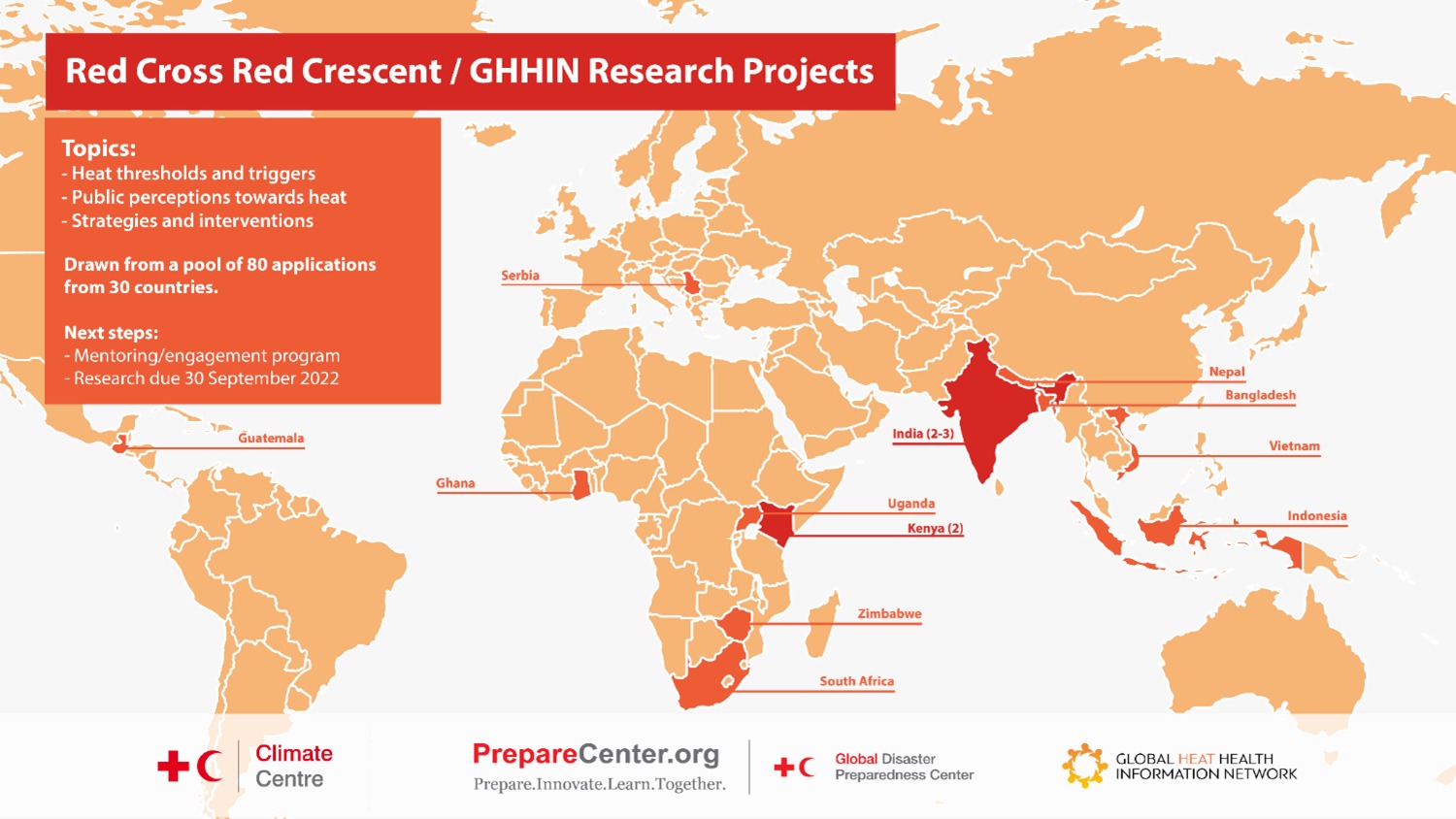
Meet the Researchers
(more to be added soon)
Name: Tran Nu Quy Linh
Country: Vietnam
Organization/institution: Hatinh Centre for Disease Control and Prevention
Project name: Relationships between ambient temperature exposure and hospitalizations in different ecological regions in Vietnam
Project dates: 15/4/2022 – 30/10/2022
Briefly explain your research project for a non-technical audience:
The increased ambient temperatures worldwide have an adverse impact on mortality and hospitalization risk. Vietnam is one of the most vulnerable countries to the effects of extreme weather events. Therefore, the aim of this study is to examine the impact of heat and heatwaves on the risk of hospitalization in different ecological regions in Vietnam.
What is the relevance of your research project for the heat health community?
The research will identify high-risk regions in Vietnam for heat-related hospitalization and temperature-sensitive diseases. From these findings, recommendations will be suggested to develop heat–health community practices.
How might the knowledge generated from this study help people?
The findings have important implications for better understanding the impacts of increased temperature on human health and contribute to developing future heat-health action plans and adaptation programs in Vietnam to protect residents from adverse health effects of temperature.
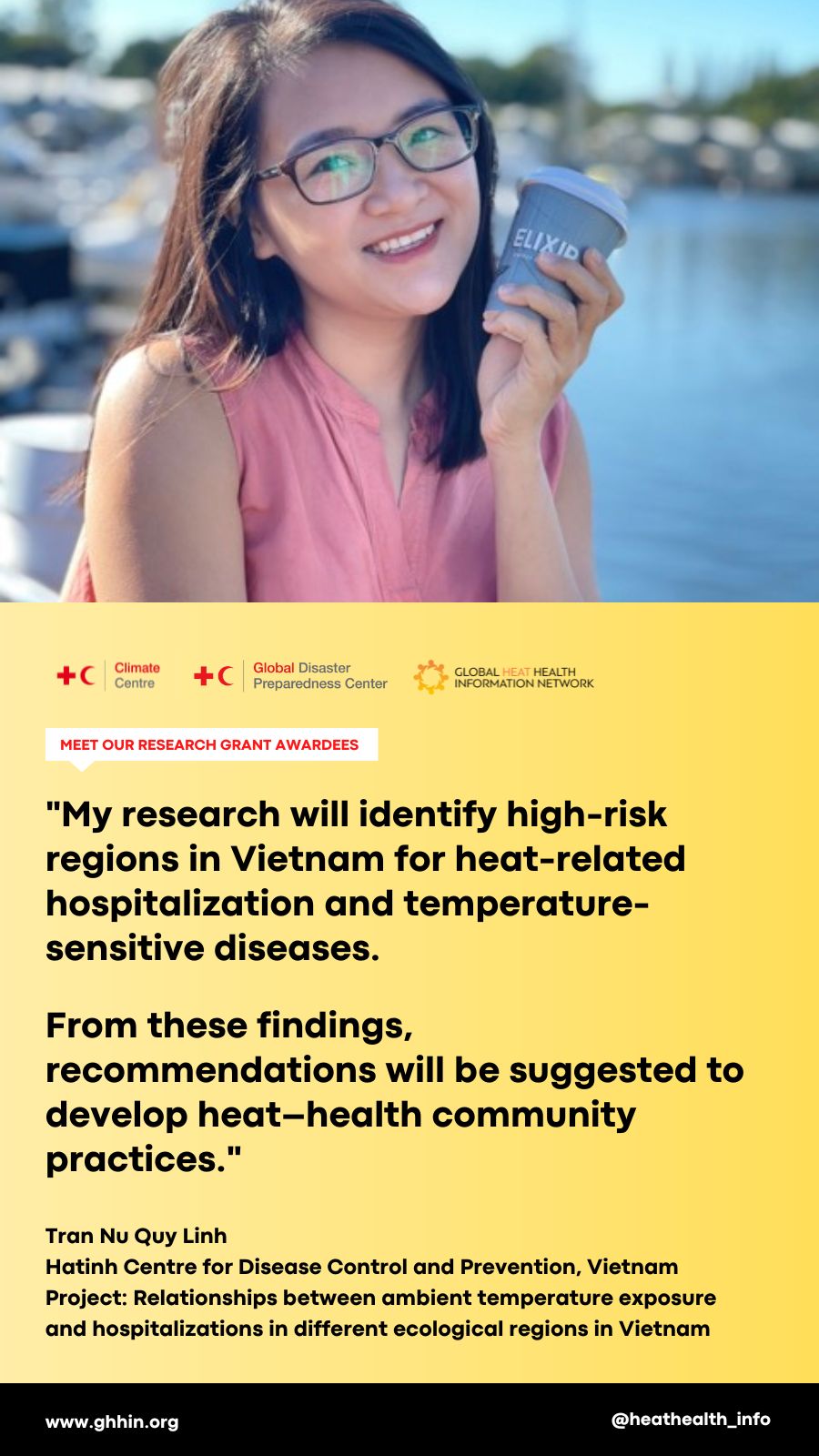
Name: Dragan Milosevic
Country: Serbia
Organization/institution: University of Novi Sad
Project name: Extreme heat in Serbia
Project dates: May-October 2022
Briefly explain your research project for a non-technical audience:
My research will identify the local heat thresholds and triggers in Serbia. More specifically, the project will answer the following research questions: 1) How many people have died during recent heatwave events (2015-2020) in Serbia?; and 2) At what combination of temperature/humidity/duration do extreme temperatures lead to an increase in death in the period 2015-2020 in Serbia?
What is the relevance of your research project for the heat health community?
The project will increase the knowledge about extreme heat impacts in Serbia and will provide the collected resources (e.g., databases, papers) to the heat health community worldwide. This can lead to future cooperation between the researchers and practitioners in this study domain.
How might the knowledge generated from this study help people?
The generated knowledge from the project will increase the awareness of the people and relevant stakeholders in Serbia related to the effects of extreme heat on health.
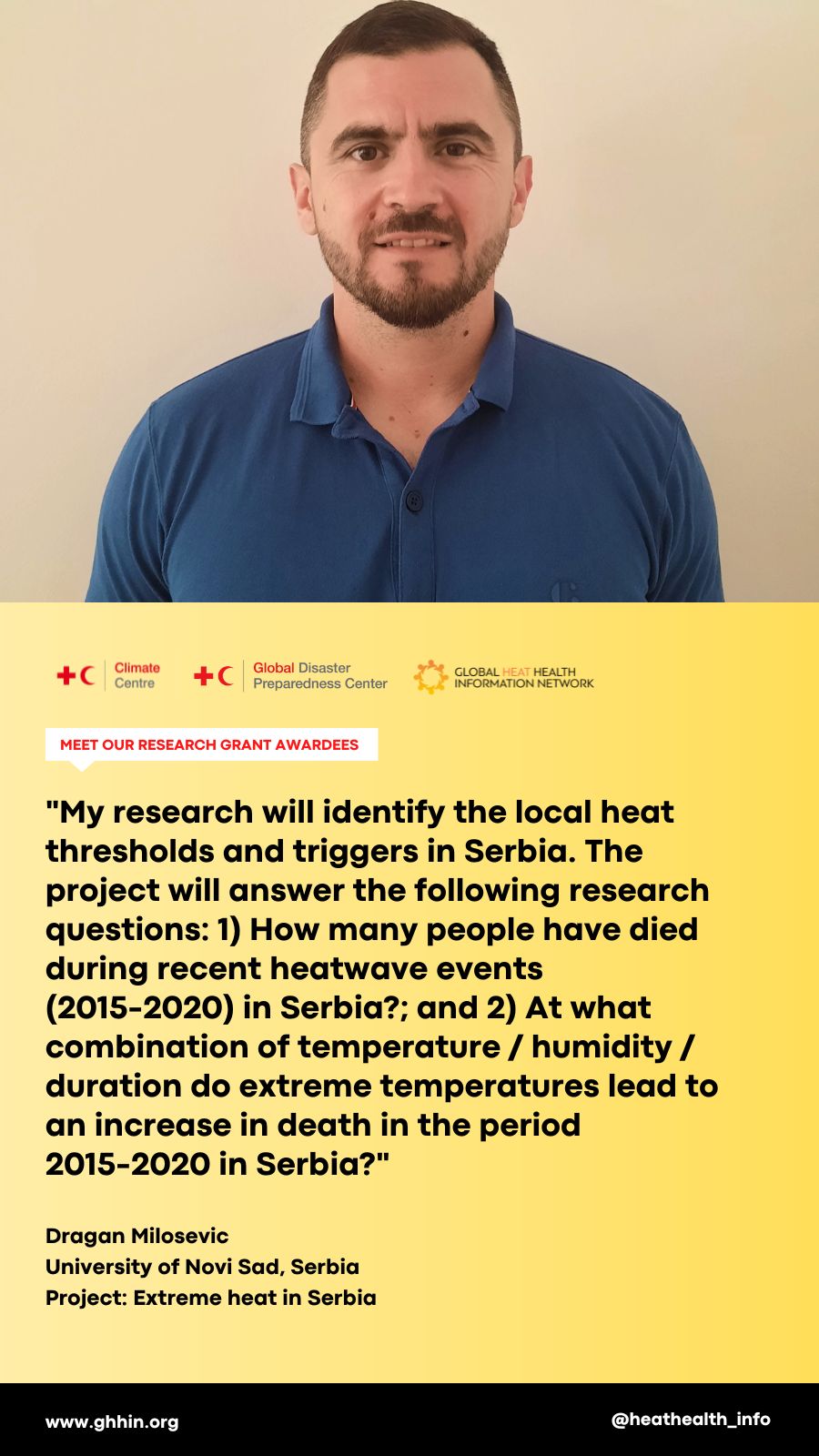
Name: Patience Chadambuka
Country: Zimbabwe
Organization/Institution: Midlands State University
Project name: Beitbridge residents’ perceptions of extreme heat
Project dates: May-October 2022
Briefly explain your research project for a non-technical audience:
Broadly, the study seeks to analyse public perceptions towards heat, in Zimbabwe’s extreme heat prone Beitbridge district. Specifically, it focuses on how different groups perceive and experience risks related to climate induced extreme heat including how they are coping with the heat. The study will further establish institutional interventions that are in place or can be put in place to help communities cope with heat. Finally, we explore effective communication and outreach strategies that can be adopted to ensure the largest uptake of self-protective measures for vulnerable groups in Beitbridge District.
What is the relevance of your research project for the heat health community?
The study is potentially the first in Zimbabwe to specifically focus on climate change induced extreme heat. As such, it will pave way for further similar studies, bearing in mind the global realities of climate change induced extreme heat. It engages communities, government institutions, academia, policy makers and other players by way of (re)directing their attention to the inconvenient realities of extreme heat, including the socio-economic and health implications of extreme heat. Future collaborations and exchanges will also be established through this study.
How might the knowledge generated from this study help people?
Study findings will help raise awareness on extreme heat and its consequences to communities and relevant stakeholders. It will also establish possible specific interventions that can be adopted to help communities cope with extreme heat.
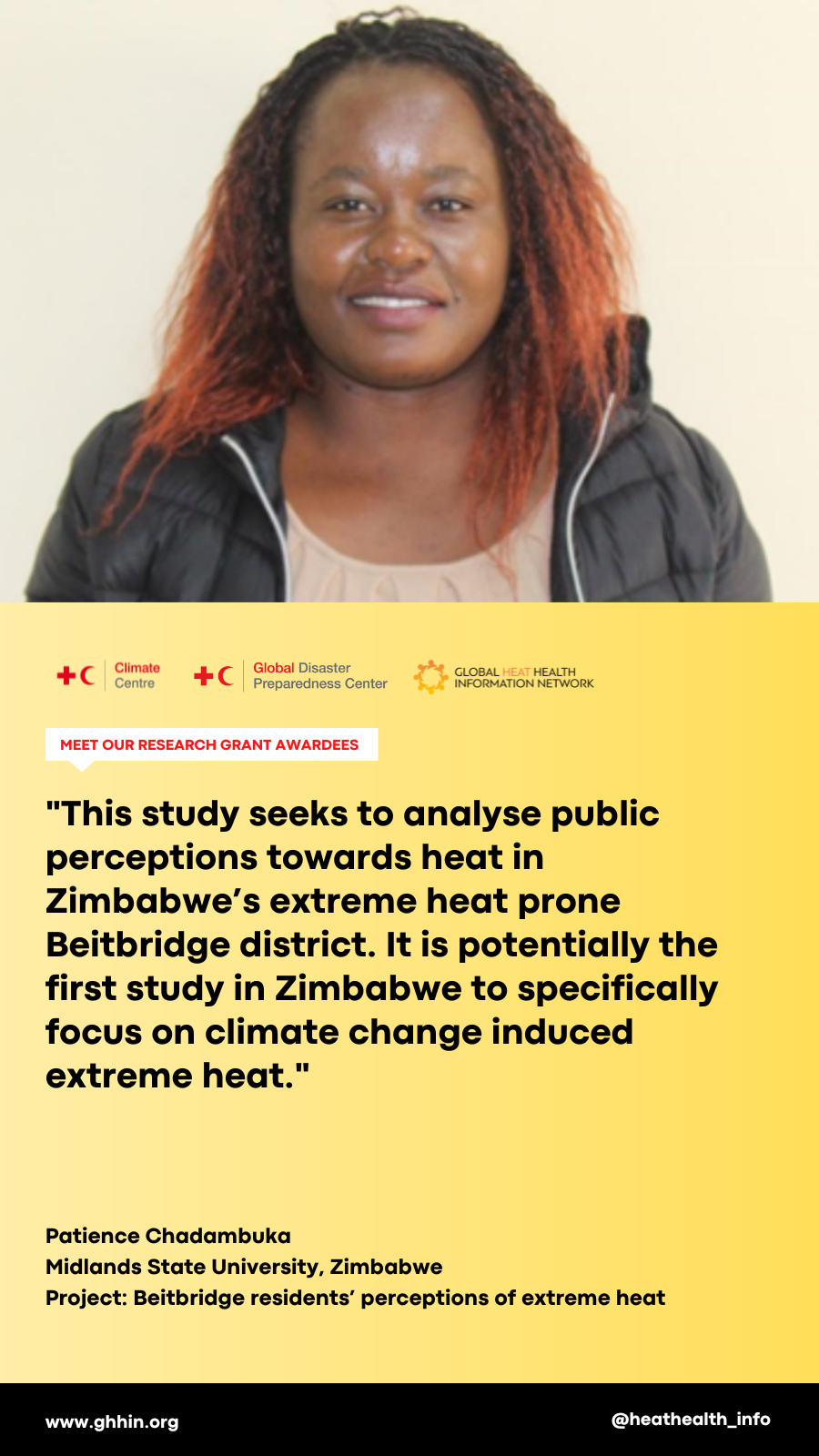
Name: Farzana Yeasmin
Country: Bangladesh
Organization/institution: Griffith University, Gold Coast, Australia
Project name: Managing heat stress among ready-made clothing workers, Dhaka, Bangladesh
Project dates: May 2022-Oct 2022
Briefly explain your research project for a non-technical audience:
This project aims to identify the health and productivity impact of heat and the barriers to accessing cooling options, or medical care, for heat stress in the ready-made garment (RMG) working population of Bangladesh.
What is the relevance of your research project for the heat health community?
Already, heat stress has the potential to affect the health, welfare and productivity of factory workers, and as the warming effects of climate change become more pronounced so too will RMG workers’ risk of heat illness and injury. Although extensive research on the implications of occupational heat stress has been carried out, much of the current evidence base does not consider the specific needs and capacities of developing countries.
How might the knowledge generated from this study help people?
Understanding the current barriers to mitigating heat stress through the implementation of better working practices, minimum standards, and improved occupational health and safety will enable future research to better target interventions and mechanisms for change across the industry.
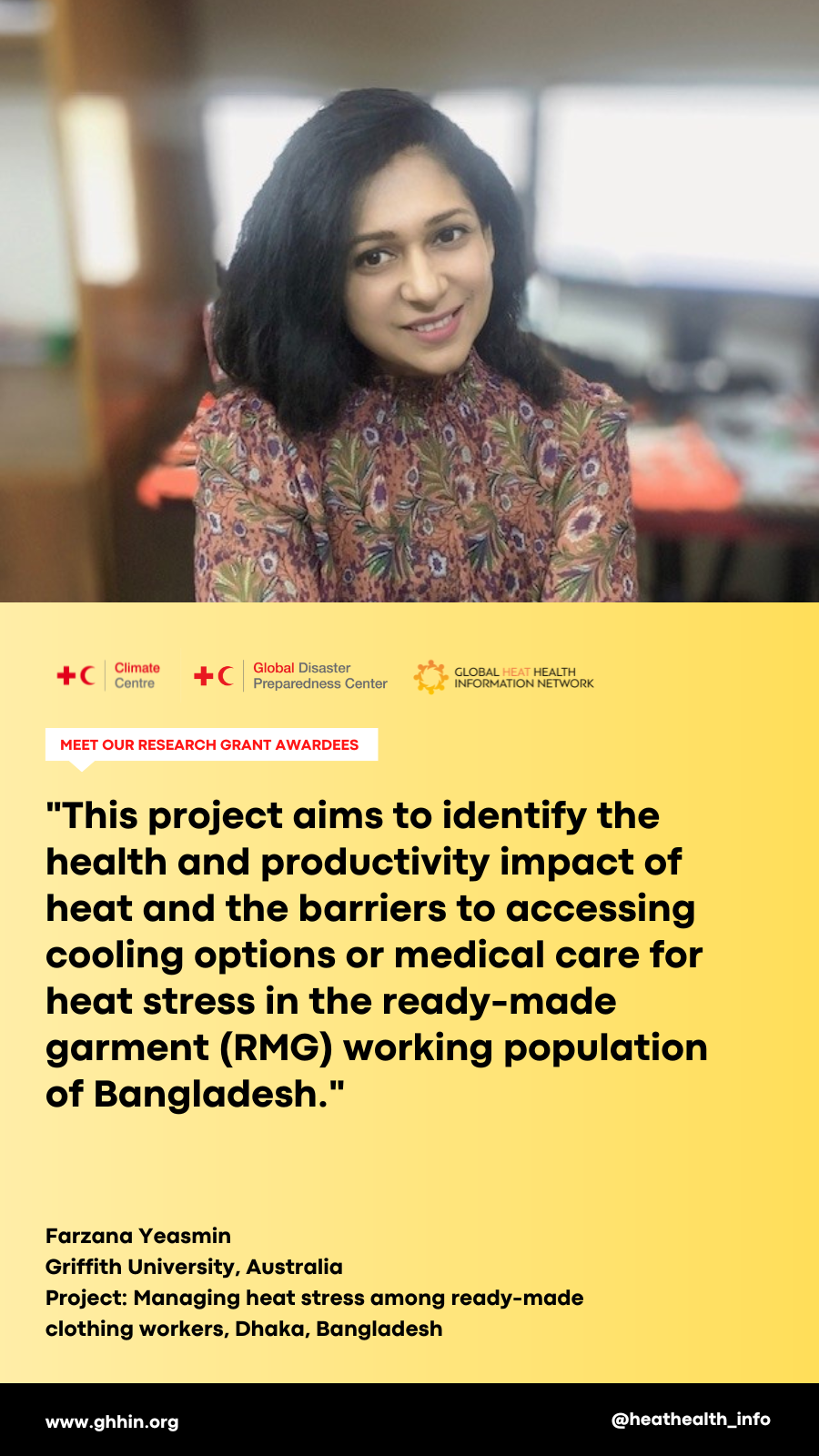
Name: Timothy Chambers
Country: South Africa
Organization/institution: University of Cape Town
Project name: identifying temperature distributions and heat solutions in hot South African cities
Project dates: Completion October 2022
Briefly explain your research project for a non-technical audience:
The project has two main parts. The first focuses on using satellite thermal imagery to create high-resolution surface temperature maps of hot South African cities. The second part is focused on modelling chosen hot days in these cities and manipulating the models landcover dataset to run scenarios where 1) the tree cover is increased and 2) the reflectance of houses roofing is increased.
What is the relevance of your research project for the heat health community?
The research will hopefully provide both useful information about heat vulnerable South African cities, as well as methods for identifying and modelling heat in future heat related research.
How might the knowledge generated from this study help people?
The research helps to identify areas and people most at risk to extreme heat as well as the effectiveness of potential mitigation strategies. The hope is that government and other organisations can use this information to help vulnerable communities most effectively and efficiently.
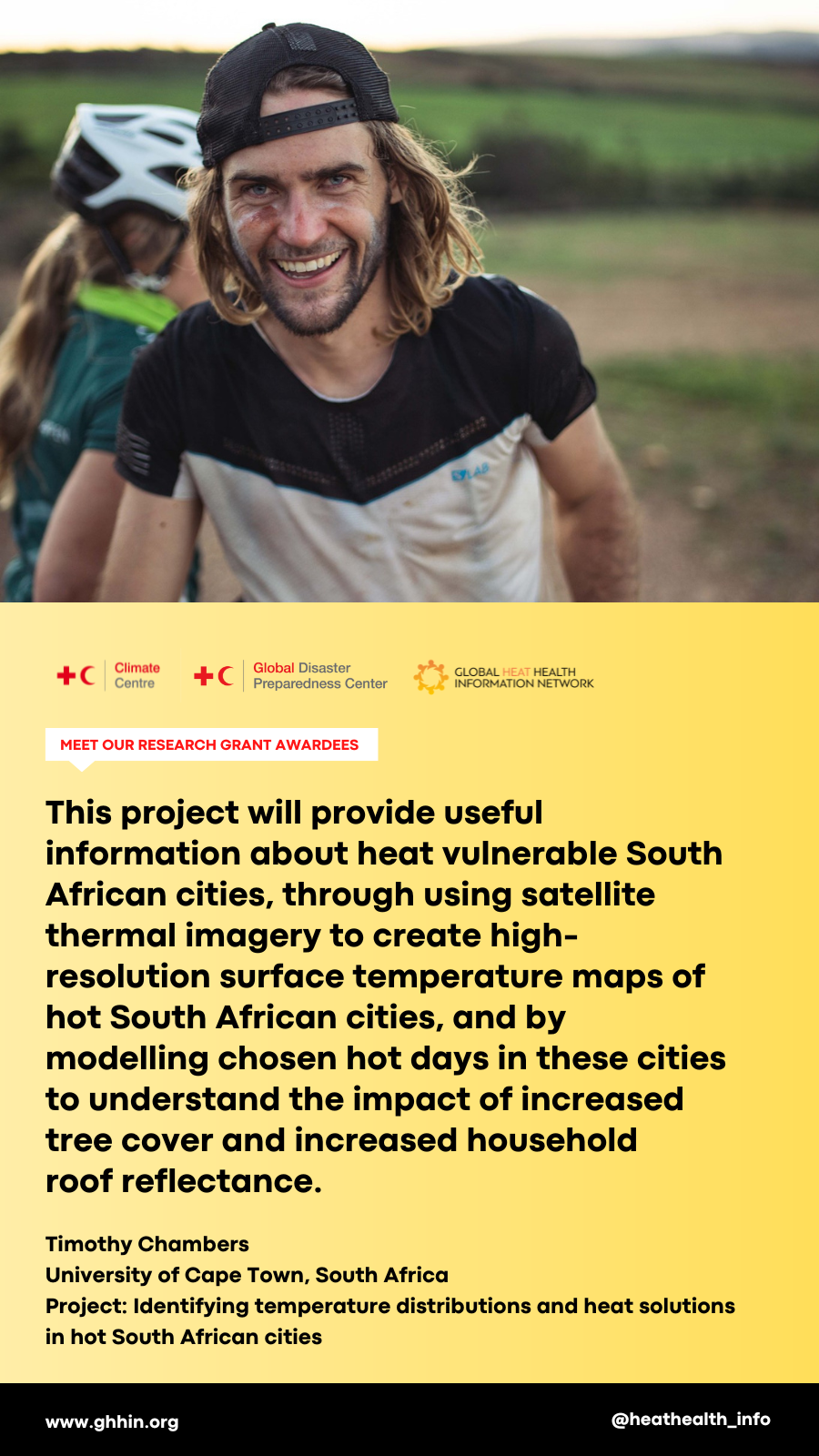
Name: Hakimu Sseviiri
Country: Uganda
Organization/institution: Urban Action and Innovations Lab, Makerere University and Makerere University Centre for Climate Change
Research and Innovations
Project name: Heat Risk Perception and Communication Strategies within the Informal Sector in Kampala City, Uganda
Project dates: June-October 2022
Briefly explain your research project for a non-technical audience:
The research project seeks to understand heat risk perception amongst informal settlements and business enterprises that are mostly exposed to heat in two parishes i.e., Kibuye I and Bwaise III in Kampala city. It also explores communication strategies in place to make people aware of the heat stress, its associated impacts and adaptation responses across the highly vulnerable communities and populations.
What is the relevance of your research project for the heat health community?
The heat risk research in Uganda offers several opportunities for the heat health community mainly through strengthened research capacities to the under research parts of the world especially on the domain of heat and health. Through this project, networks have been established not only between individuals but also individuals directly and indirectly. Such networks offers opportunities for collective heat health research awareness, data availability and avenues to collaboratively work on research initiatives, organizing events and resource mobilization amongst members of the heat health community and their institutions.
How might the knowledge generated from this study help people?
The research being conducted is the first of its nature to focus on the public or people centric aspects of heat risk in Kampala city. Previous studies have mostly focused on analyzing urban heat island effects through soil heat mapping, tree canopy estimation, weather parameters measurement and use of geospatial earth observations technologies to determine heat stress, and such have not engaged populations. Accordingly, this study has not increased awareness and consciousness about heat risk amongst urban communities in Kampala hence improving their understanding and recognition of unusually hotter conditions that inform response within the city. From the adaptation planning perspective, city authorities, the central government line ministries and civil society organizations have been and shall continue to be engaged to share knowledge about heat risk perception, adaptation practices and meaningful communications. Such engagements shall inform the mainstreaming of heat risk and effective communication in urban climate policies, planning and implementation of resilience targeted adaptation strategies.
